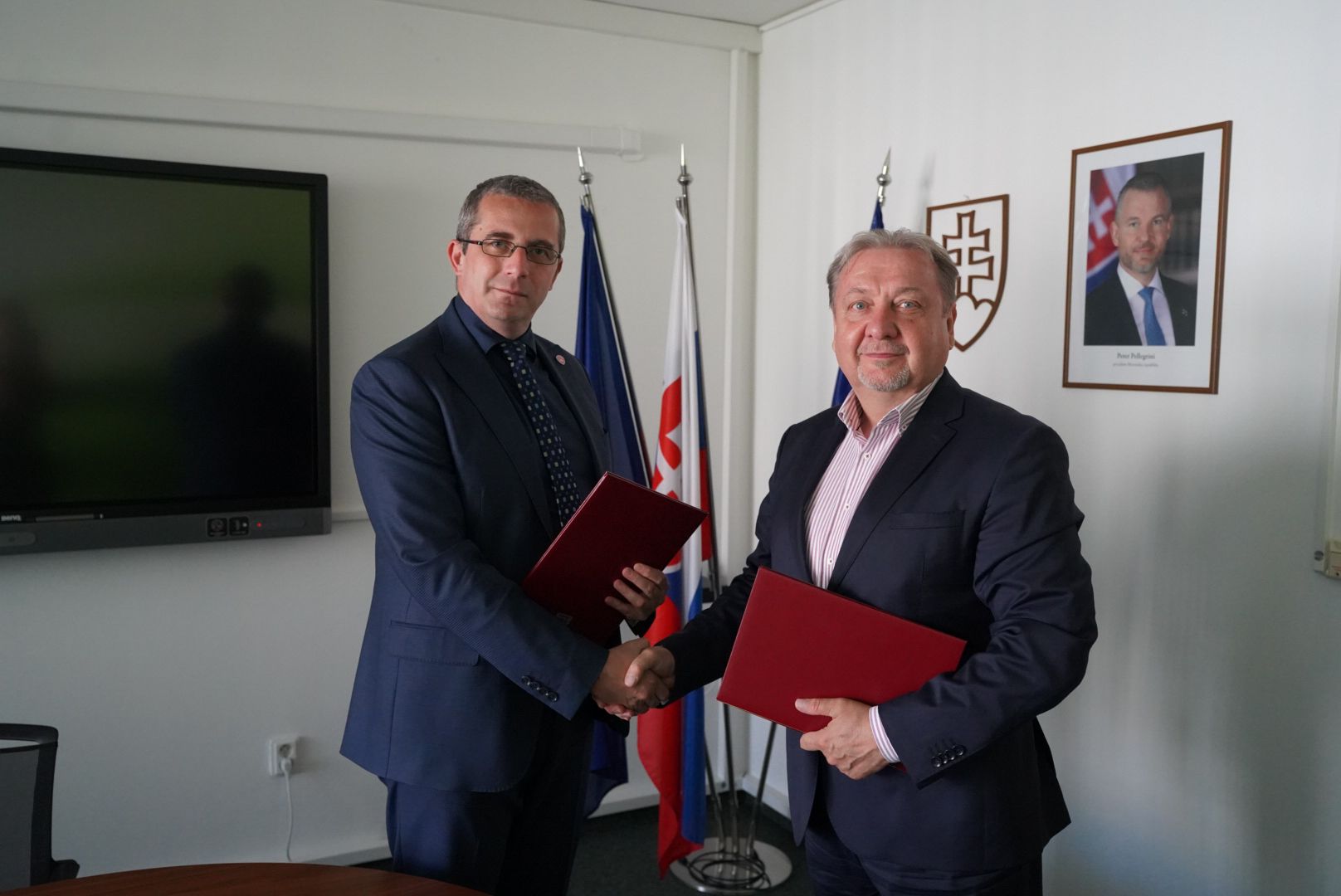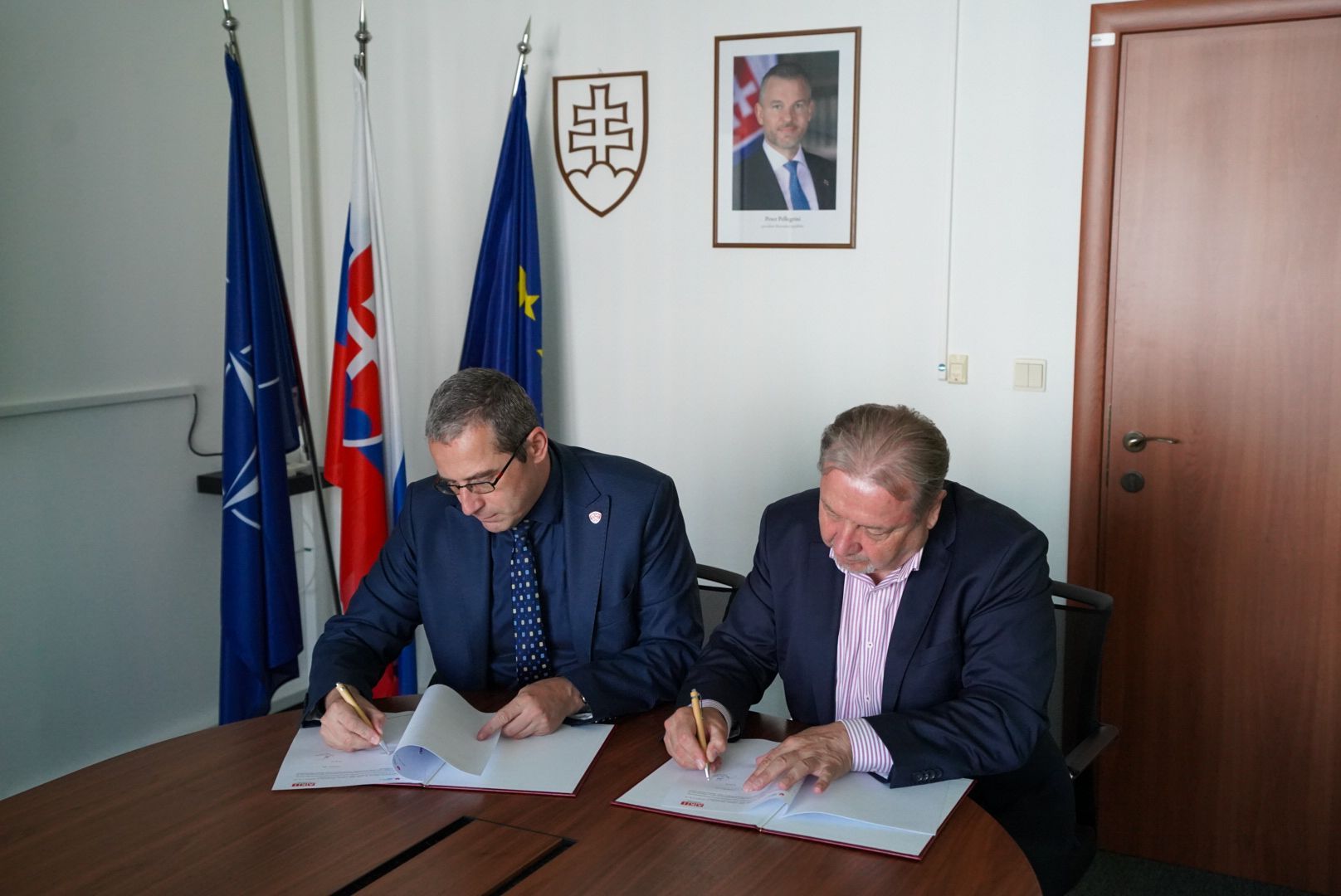Safer Future: National Security Authority and Critical Infrastructure Association of the Slovak Republic signed a memorandum of cooperation

On July 3, 2025, a memorandum of cooperation was concluded in Bratislava between the National Security Authority (NBÚ) and the Critical Infrastructure Association of the Slovak Republic (AKI SR). The document was officially signed by JUDr. Roman Konečný, Director of the National Security Authority, and Ing. Tibor Straka, President of the Critical Infrastructure Association of the Slovak Republic. The cooperation will be implemented at the level of professional discussions, knowledge exchange, and presentation of the most suitable approaches in the field of information and cybersecurity. Both parties have also committed to supporting education in the field of information security and contributing to the prevention of cybercrime. This memorandum is the first of a series of memoranda that the AKI SR will conclude with other state administration bodies exercising competence in the field of critical infrastructure.
Why is the conclusion of the memorandum important?
With the establishment of the Critical Infrastructure Association of the Slovak Republic, a platform for cooperation between the public and private sectors was created in Slovakia. This platform provides space for collaboration in various areas. This includes the development of analyses, identification of threats, dangers, and vulnerabilities. It also includes conducting audits and preparing projects that aim to eliminate deficiencies and establish systemic measures. The goal of these activities is to increase the resilience of critical entities operating in eleven sectors defined by law: energy, transport, finance, postal services, healthcare, water and atmosphere, digital infrastructure, public administration, space, food production, processing and distribution, and industry. The Association also focuses on supporting the provision of all 79 essential services within these sectors.
The cooperation comes at a time when a new law on critical infrastructure came into effect on January 1, 2025, which brings fundamental changes in the identification and management of critical entities' obligations. The new legislation emphasizes their responsibility, preparedness, and ability to respond to incidents. This significantly increases the requirements for cooperation between the public and private sectors.









